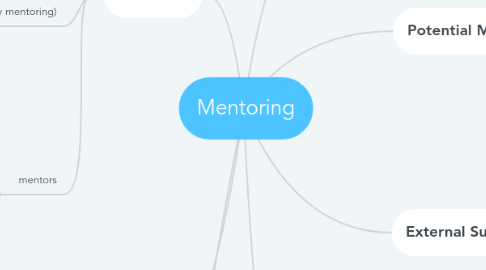
1. Gaps
1.1. Mentoring of Associate Level Professors
1.2. support for varied research methodologies
1.3. software training/support
1.4. guidance in identifying available data within library and on campus
1.5. statement writing
2. Personnel
2.1. paper preparers
2.1.1. guidance in filling out dossier
2.1.2. feedback on statements
2.2. Research coordinator (formerly mentoring)
2.2.1. onboarding
2.2.2. New mentor training
2.2.3. Scholarly Roundup series
2.2.3.1. informal ongoing support/forum for questions and guidance
2.2.4. matching people with like-interests (collaborator list)
2.2.5. guidance in professional development/research training
2.2.6. individual workshops
2.2.6.1. training in selected research methodologies
2.2.6.2. overview of publication process, identifying suitable, quality journals
2.3. mentors
2.3.1. scholarship guidance
2.3.2. goal-setting
2.3.3. feedback
2.3.4. accountability
2.3.5. one-on-one relationship
3. Challenges
3.1. Inequity in mentee load on good mentors
3.2. consistent advice re: norms and expectations, recommended timeline
3.3. Lack of acknowledgement for time committed to mentoring
4. Potential Models
4.1. Cohorts based on tenure/promotion clock
4.2. individual mentors
4.3. affinity groups (by topic/research emphasis, or methodology)
4.3.1. could build in more support, encourage collaboration
5. Committees
5.1. Executive Committee
5.1.1. mentor assignments
5.1.2. Internal IRB review (optional)
5.2. P&T
5.2.1. 1Y, 3Y, 5Y paperwork workshops
5.2.2. Mentorship Q&A at monthly meetings
6. External Support
6.1. NCFD (national center for faculty development & diversity resources)
6.2. campus resources
6.3. Professional organizations
6.3.1. ALA
6.3.2. MLA
6.3.3. ACRL
6.3.4. ARL
